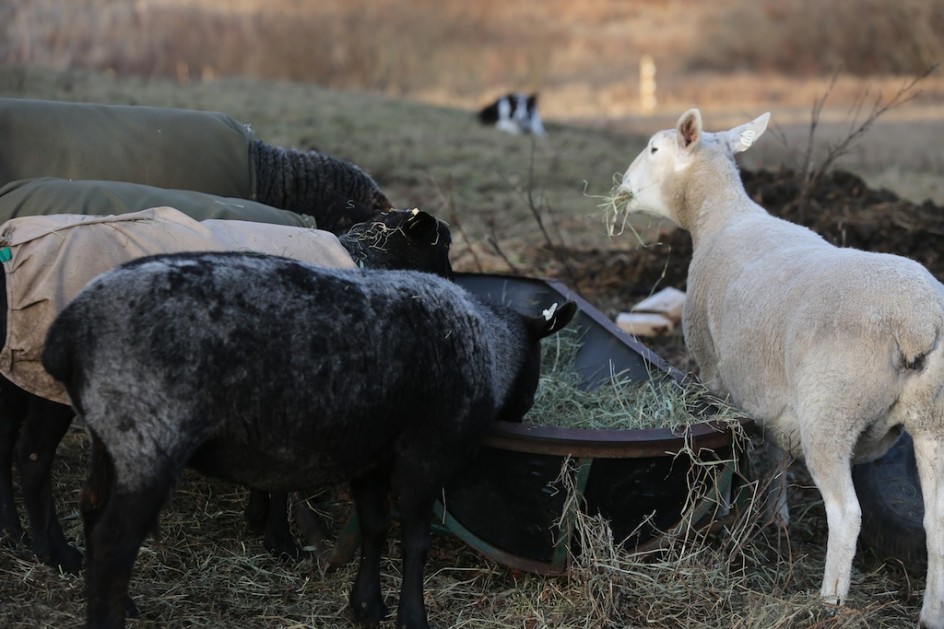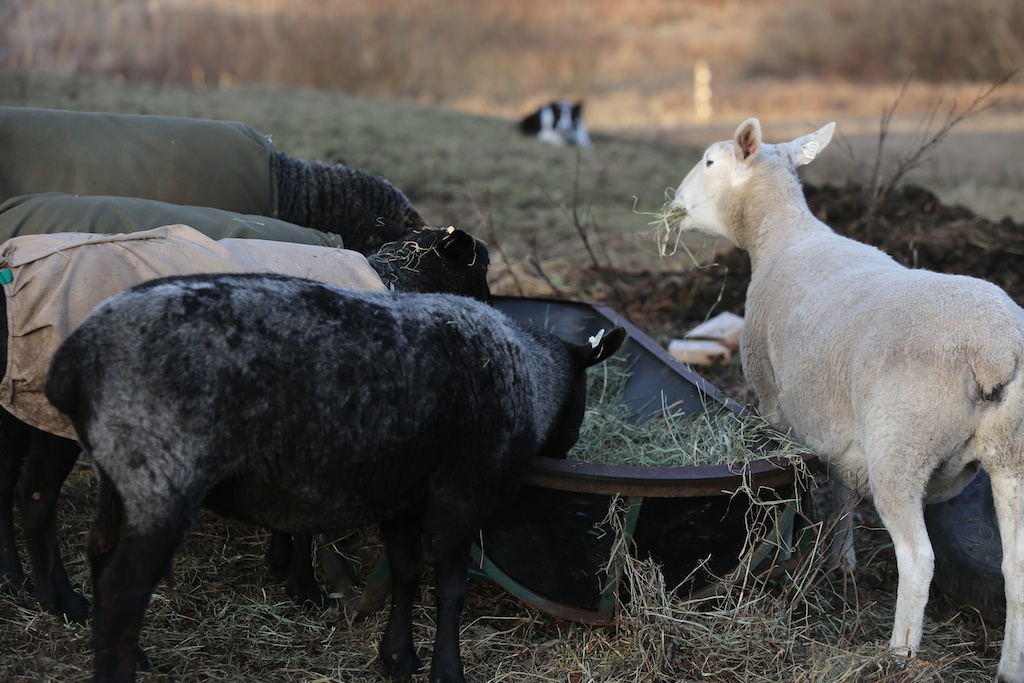
“In The First Country Of Places,” Environmental Psychologist Louise Chawla writes that most creative men who write about nature were brought to it by men in their childhood – fathers taking them hunting, uncles taking them fishing, brothers camping with them in the woods. I was brought to nature in my late 50’s by a border collie – Orson – who I struggling to live with. In my searching, we ended up at a sheep farm in Pennsylvania, Raspberry Ridge, where I first saw the rituals and rhythms of farm life and knew I had to reconnect myself to the natural world. I set out to get a farm, and I got one (actually two.)
For reasons that will never be clear, living on a farm in rural America was my destiny, a life I will never leave. The rituals and rhythms of the farm speak to me, ground me. None more so that feeding the animals. Animals lives revolve around food, and if you live with farm animals, food is part of the spine, the skeleton, the narrative of life. It is challenging, evolving, nourishing. In a way it is the point, the thing that binds them to us, and our lives to them.
We have donkeys, chickens, a barn cat, three dogs, five sheep. Each of these species eats different things at different times in different and very specific ways. The donkeys here get about one-fourth of a bale of hay twice a day – once around sunrise, the second around dusk. The sheep get less twice a day. Sheep eat quickly (on grass, sheep eat low, goats eat high), almost wolfing their food down. Donkeys eat luxuriously, pulling hay out of the feeder, often dumping it on the ground as they sort through it. They are not picky eaters, but deliberate eaters. Thorough eaters. They have a sixth sense for feeding time, and always appear when we emerge. Simon hears us talking in our bedroom in the morning when we get up, and he brays, possibly to say good morning, more likely for food.
Chickens get meal once or twice a day. In the summer, they have bugs and buds and worms, in the winter, they stay close to the coop, dependent on us for food and nutrients. Minnie the barn cat appears at the back door at dawn and complains until she is fed – a half can of wet food in the morning, some kibble in the afternoon. Plus mice, rats and moles.
The dogs get fed (Fromm Foods, obviously) twice a day. One cup in the morning, one in the afternoon. Frieda gets senior food, Lenore adult food, Red high-octane stuff for energy and protein. Generally everyone gets fed at the same time, and twice a day. But a farm is an eco-system, no part is separate from the other really. If it is raining, we gather buckets and a wheelbarrow and feed everybody in the Pole Barn, and that is a bit of a brawl. We leave them to sort it out themselves.
If the chickens get wind of cat food, they chase the barn cats away – chickens are ruthless and aggressive about food – and so we feed Minnie before we let the chickens out of the coop. Lenore will eat anybody’s food, so she stays inside during feeding time. Red keeps the sheep away from the donkey feeder – they are fed separately – to prevent brawls from breaking out. Donkeys believe all of the food in the universe is theirs and they will eat it all given the chance. Twice a day, we check the heated tubs of water, and they constantly need re-filling. We keep them full. They need to be cleaned out as the animals drop hay and dirt from their coats into the water. Often, mice and rodents will crawl in the tub and drown.
These chores are the rhythms of life here. We do all of these chores together, because we find it immensely satisfying to see the animals fed and cared for. Maria and I are connected in this nurturing, we look at the hay, the feeders, the ground, the wood in the barn. Feeding brings us closer to ourselves. Food is a conversation, really, it is the meeting ground between animals and people, the way animals come to know and trust us, the way for us to get close to them and see and know and talk to them. I am grateful I did not spend my life apart from nature and the animal world, these rituals and rhythms are the veins and pulse of my life.

